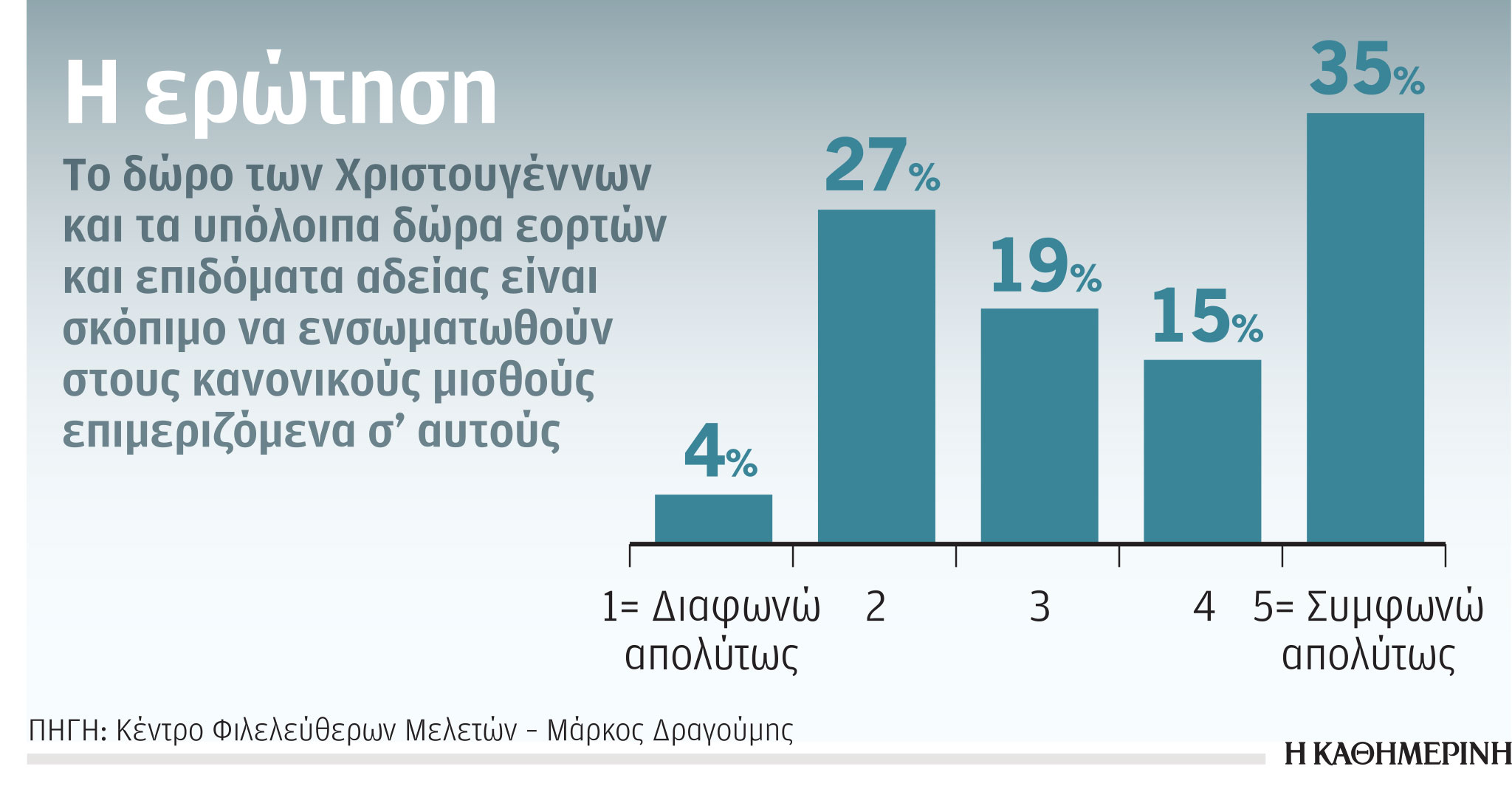
For the most part, economists who are members of the Greek Group of Economists are in favor of including vacation pay and holiday pay in regular salaries by dividing them into them.
Holiday pay is an established tradition in our country’s working environment, even if only in the private sector now, after its abolition by the state government, with the obvious aim of strengthening the purchasing power of workers during holiday periods when consumption needs increase.
Arguments for permission can be summarized in three broad categories: First, as mentioned above, it is an ingrained tradition – if there is no particular reason to change it, then a reasonable bias is often in favor of keeping it. Second, it is argued that the payment of holiday and vacation pay increases consumption during these periods, especially in industries, goods and services that rely heavily on vacations and holidays for economic survival and profitability. Third, there are behavioral reasons: changing this practice by dividing benefits into regular wages may make it more difficult for many employees to adjust their planning to now actively anticipate the savings that would enable them to meet needs during these special periods. .
Administrative burden
On the other hand, it is argued that keeping the “gift” allowance creates an administrative burden on businesses, even if it is small, and also makes it difficult to compare wages in Greece and other countries, since it needs to be reduced to the annual wage. In fact, it has even been argued that these benefits act as a quasi-interest-free loan from employees to businesses, which can thus pay back the sums collected during the holidays that they would otherwise have to pay monthly.
The Group’s December question was about comparing two alternatives that are fundamentally economically equivalent: keeping the current holiday pay regime in the private sector or dividing it into regular wages. Of the total number of 26 respondents, 50% positively assess the changes in current practice, while 31% disagree. 19% of respondents chose two options.
In their comments, posted in their entirety on the KEFIM website, members of the Hellenic Panel of Economists note, on the one hand, that splitting vacation pay into regular salaries would simplify payroll, making it easier to manage the cash flow of businesses, but also facilitate planning and covering non-emergency household expenses. , especially during precision periods like the one we’re going through, prioritizing these expenses over emergency vacation expenses. In addition, it is pointed out that the earlier payment of these amounts implies a profit, albeit a small one, for workers in an environment of credit constraints, high interest rates and inflation.
Social needs
On the other hand, the need to preserve the meaning and purpose of these “gifts” is emphasized, which accordingly facilitate the coverage of social needs and desires during festive periods. It also emphasizes that since the money remains the same, has the same source and the same final destination, its final “packaging” does not matter much.
However, in any case, and no matter how the question is framed, the comments of the participating economists highlight the potentially problematic nature of both paternalistic measures when the state tries to take some of the responsibility for household planning, especially when it is extremely difficult or impossible in practice to establish the percentage of households actually facing with a genuine problem of self-control – as well as, conversely, without particularly obvious nuanced reasons for changing established practices that created their own behavioral habits and social norms over time.
* Giorgos Archondas is a member of the KEFIM Scientific Council and chair of the Hellenic Economists Group.
*Group of Greek Economists is a KEFIM initiative that aims to record and report on the views of leading Greek economists on key economic policy issues. The panel is attended by 75 economists from 59 universities and institutions in 11 countries. A detailed list of participants, their answers to monthly questions and their explanatory comments, as well as answers to frequently asked questions about the Panel can be viewed on the KEFIM website, kefim.org.
Source: Kathimerini
Ashley Bailey is a talented author and journalist known for her writing on trending topics. Currently working at 247 news reel, she brings readers fresh perspectives on current issues. With her well-researched and thought-provoking articles, she captures the zeitgeist and stays ahead of the latest trends. Ashley’s writing is a must-read for anyone interested in staying up-to-date with the latest developments.